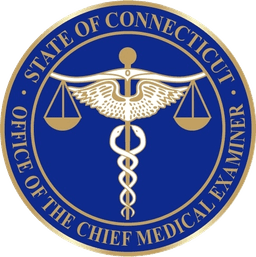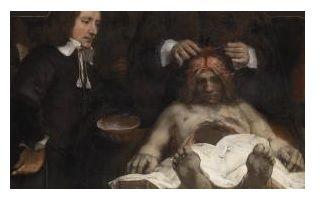
Week 3: Medicolegal Death Investigation
Quiz by Professor J. Crowson
Feel free to use or edit a copy
includes Teacher and Student dashboards
Measure skillsfrom any curriculum
Tag the questions with any skills you have. Your dashboard will track each student's mastery of each skill.
- edit the questions
- save a copy for later
- start a class game
- automatically assign follow-up activities based on students’ scores
- assign as homework
- share a link with colleagues
- print as a bubble sheet
- Q1
What types of historical events are rooted in medicolegal investigation?
Hippocrates and his writings
Inquiries on deaths such as Julius Caesar
All of the above.
Egyptian culture of mummification and dissection
30s - Q2
Medicolegal Investigation is founded in what forensic disciplines?
Bloodstain Analysis
Crime Scene Reconstruction
Forensic chemistry
Forensic pathology/medicine
30s - Q3
True or false: pathologists and forensic pathologists are the same physician.
True
False
30s - Q4
The largest disparity between coroners and medical examiners, is typically their ________________.
Salary
Jurisdictions
Responsibilities
Education
30s - Q5
A coroner is usually______________________.
elected
hired by a committee
a law enforcement officer
a physician
30s - Q6
All of the following are examples of confirmatory methods to identify a decedent except for:
Fingerprints
Dental Records
DNA
Driver License on scene
30s - Q7
Which of the following includes the 5 typical manners of death?
Natural, Accidental, Suicide, Homicide and Undetermined
Nonintentional, Accidental, Homicide, Suicide and Natural
Homicide, Intentional, Accidental, Natural and Pending
Natural, Accidental, Murder, and Therapeutic Complication
60s - Q8
True or false: Murder and homicide are the same.
True
False
60s - Q9
____________ is the only manner of death where INTENT must be proven.
Accident
Natural
Suicide
Homicide
60s - Q10
All of the following would be causes of death except for:
Gunshot wound of the head
Suicide
Blunt Force Trauma to the torso
Hanging
60s - Q11
True or false: Death investigators are usually physicians.
False
True
60s - Q12
Why should an MDI note items such as medications, home conditions, or weapons at a scene?
Items like that will have to collected by MDIs.
They document evidence as thoroughly as crime scene personnel.
It allows them more time to spend on scene and get more pay.
It may be related to the cause and manner of death.
60s - Q13
Out of the following statements, why may it be beneficial for an MDI to have knowledge on basic medicine such as conditions, procedures or medications?
Certain diseases may make people more susceptible to particular injuries or outcomes.
They may know that medications are supportive of certain conditions such as depression or hypertension.
They may be able to determine if scars are potentially linked to a past surgical procedures.
All of the above.
60s - Q14
The following refers to the postmortem stiffening of the muscles:
Livor Mortis
Rigor Mortis
Al Gore Mortis
Algor Mortis
60s - Q15
________________ is the postmortem settling of the blood following death.
Livor or lividity
Mortis Triad
Algor Mortis
Rigor Mortis
60s
